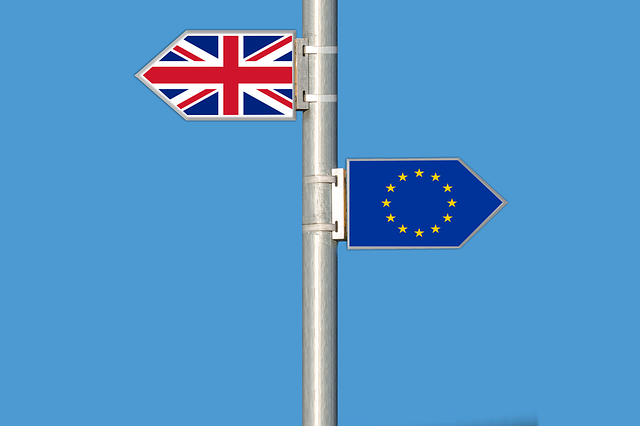Cian Hassett, Global Graduate, Bord Bia – The Irish Food Board
Britain finally breaks away from the EU after 47 years. Britain’s 47-year membership as a member of the European Union ended at 11 pm on Friday night, in an end to the post-war integration to the continent, and something German chancellor Angela Merkel called a “deep cut for us all”. Boris Johnson marked the exit with an optimistic address to the nation, claiming that the divorce was inevitable. Britain’s departure from the EU marks the first exit by any big country from the bloc and strips the 27-member union of one of its largest economies and diplomatic players. Mr. Johnson’s claim that Brexit would allow the UK government to release the full potential of the country was countered by EU leaders who claimed the Prime Minister was inflicting self-harm on his nation. Ursula von der Leyen, the European Commission president, said that experience has taught that strength is found in the union of its countries. She went on to wish the UK well but vowed to fight for the EU’s interests in upcoming negotiations over the future relationship, reiterating that while the bloc wanted the best relationship with Britain, it would never be as good as with EU membership.
The UK has now lost all representation in Brussels and is considered a third country going forward, seeking a trade deal with a well establish bloc from outside the circle. Angela Merkel said that talks with the UK would dominate the year ahead. She warned that if Boris Johnson insisted on a Canada-like trade deal, eliminating tariffs and quotas but allowing the UK to stray from Brussels rules, that there would be negative consequences for British business. Michael Gove, a cabinet minister and leading Brexit campaigner, told UK businesses that the government was prepared to see an increase in costs and delays at borders as a price for regaining the UK’s sovereign right to set its own laws and regulations.
Brexit will increase the speed of Scottish independence, according to Nicola Sturgeon. Ms. Sturgeon insisted on Friday as she sought to cool frustration among some within her Scottish National Party at her failure to deliver another referendum on leaving the UK. The calls for patience, which were made hours before the Brexit deadline, reflected the increasing divisions within the SNP in the face of stand-offs with Boris Johnson’s Conservative UK government. The first minister’s speech highlighted the political differences between London and Edinburgh, where officials prepared to symbolically mourn Brexit day by lighting government buildings in the blue and yellow colours of the EU and insisting the European flag would continue to fly outside the parliament at Holyrood.
The latest YouGov poll this week revealed that 51% of Scottish voters were in favour of independence, a change from the 55% no vote at the 2014 independence referendum. While the first minister insisted a vote this year was still possible, she acknowledged that it might only come after Scottish parliamentary elections set for May 2021.
Ireland warns no special favours for the UK in EU trade talks. After Ireland held out in the first phase of Brexit negotiations for a deal to maintain open borders with Northern Ireland, Paschal Donohoe dismissed the notion that Dublin might now adopt a softer stance on single market rules than some EU powers such as France. Boris Johnson’s insistence on regulatory divergence from the EU to gain advantages for UK business is shaping up to be one of the biggest flashpoints in trade talks after Britain’s departure from the EU on Friday. Both sides want a close trading relationship but the EU has warned London that the UK’s market access will be curtailed by any weakening of alignment with European standards. Asked whether Ireland saw any scope for flexibility on the single market, Paschal Donohoe said the rules were clear and a cornerstone of the country’s economic model.
Key Dates
26th February 2020: Council of EU approves negotiation mandate
11th March 2020: UK Budget released
18th-19th June 2020: UK/EU summit to discuss progress
30th June 2020: Deadline for the UK and EU to extend the transition period
31st December 2020: If a trade deal has been agreed by this date, a new relationship with the EU starts. Otherwise, the UK exits the transition period without a trade deal.
31st December 2022: Last date to which transition period can be extended










